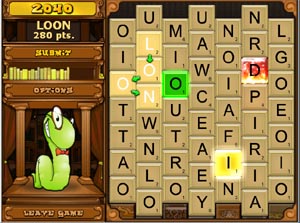
NEW YORK (CNN/Money) - Shareware didn't start in 1993, but it made a huge splash that year.
That's when id Software unleashed "Doom" on the world. Millions of people downloaded and enjoyed the free, abbreviated version of the game. Of those, roughly 160,000 called id to order the full version of the game, paying $40 plus shipping and handling. By the time Doom II rolled around the next year, though, retail distribution had taken over – and the game sold more than 2 million copies.
Fast-forward 10 years. Gaming is a multi-billion dollar industry. As sales hit new records, so does the cost of developing a game. Retail space is tight – and typically reserved for major publishers like Electronic Arts (ERTS: Research, Estimates) and Take Two Software (TTWO: Research, Estimates). Perhaps as a result, shareware is making a quiet comeback - with small, independent publishers and developers putting out some of the industry's best titles.
Need proof? Look no further than PopCap Games. With amazingly addictive games like "Bookworm" and "Bejeweled", this Seattle-based company has carved out a sizable niche for itself over the past three years.
"I think we're seeing the second coming of shareware," said Jason Kapalka, Popcap's co-founder.
 |
|
| PopCap's "Bookworm" is so addicting it should carry a warning label. |
Shareware has adapted to the times – and is known today as "electronic software delivery". The concept's the same, though: Offer a drastically shortened version of the game for free - just enough to let players decide if they like it or not - then ask them to pay for the full version. Development costs are low and marketing is rare, if it exists at all. The end result is a lower price for the consumer and a higher royalty or profit margin for the developer.
What's critical is word of mouth, something PopCap, one of the biggest of the new shareware firms, has been able to capture. Players have downloaded trial versions of the company's games nearly 30 million times. So far, roughly 1 million people have paid the optional registration fee (which usually hovers in the $20 range). The company's profitability has risen each year – and PopCap expects 2003 profits to show a 30 percent improvement over the 2002 numbers.
Licensing deals with some of the large online gaming sites helps spread the word, too. Many of today's most successful shareware companies offer free Java- or Flash-based versions of their games to Yahoo! Games, Microsoft's Zone and RealOne Arcade for a fee.
| NEW SHAREWARE LEADERS
|

|
|
|
|
The maturation of the Internet has also been beneficial. In the past, most consumers were afraid to use their credit cards online. People wanting to unlock shareware would have to manually write a check and mail it to a developer or publisher, then wait 10 or more days for a game to be delivered. Today, it's common practice to pull out your Visa while sitting in front of your PC. As a result, potential customers can start playing the full game in just a few minutes.
While PopCap has a pretty strong grasp on soccer moms (the average buyer is a woman over 30), Garage Games is targeting a different group: Hardcore gamers who have had to cut back their play time due to real world demands.
Its titles, including "Marble Blast" and "Tennis Critters", are larger downloads and use a more advanced graphics engine than most of the new shareware games. But they don't require the time commitment that many of today's boxed games do.
"We're not going to be as extremely casual as shockwave and real games," said Jeff Tunnell, co-founder of Garage Games. "We're going more for the person who used to play 'Tribes', but doesn't have time anymore."
 |
|
| Garage Games' "Tennis Critters" has gotten great buzz in gaming circles. |
Tunnell was the founder of Dynamix, the developer behind "Tribes" (as well as "Red Baron" and "The Incredible Machine"). As such, he knows the hardcore gamer's mind. He also knows the frustrations of trying to create a unique product in today's gaming world.
"We just got tired of the whole 'you have to build it big', 'you have to build the same thing over and over and over' mindset," he said. "We thought games needed to expand what they were doing."
Enter Garage Games, which will license its gaming engine to anyone for $100. Independent developers have an outlet to distribute their work – and perhaps get noticed by one of today's powerhouse publishers.
"We see ourselves as the farm team for the big box publishers someday," said Tunnell. "If you were in a rock band, we're the equivalent of playing a club."
| EXTENDED PLAY
|

|
|
|
|
For the consumer, it's typically a win-win. At $50 a pop, retail games can be a risky purchase. If you buy a game and don't like it, you're still out $50 clams. With the shareware model, you know exactly what you're getting before committing to the purchase.
"It's a low-risk experience for people," said Kapalka. "We don't have too many dissatisfied customers, because if you don't like the game, you don't buy it."

Morris is Director of Content Development for CNN/Money. Click here to send him an email.
|

